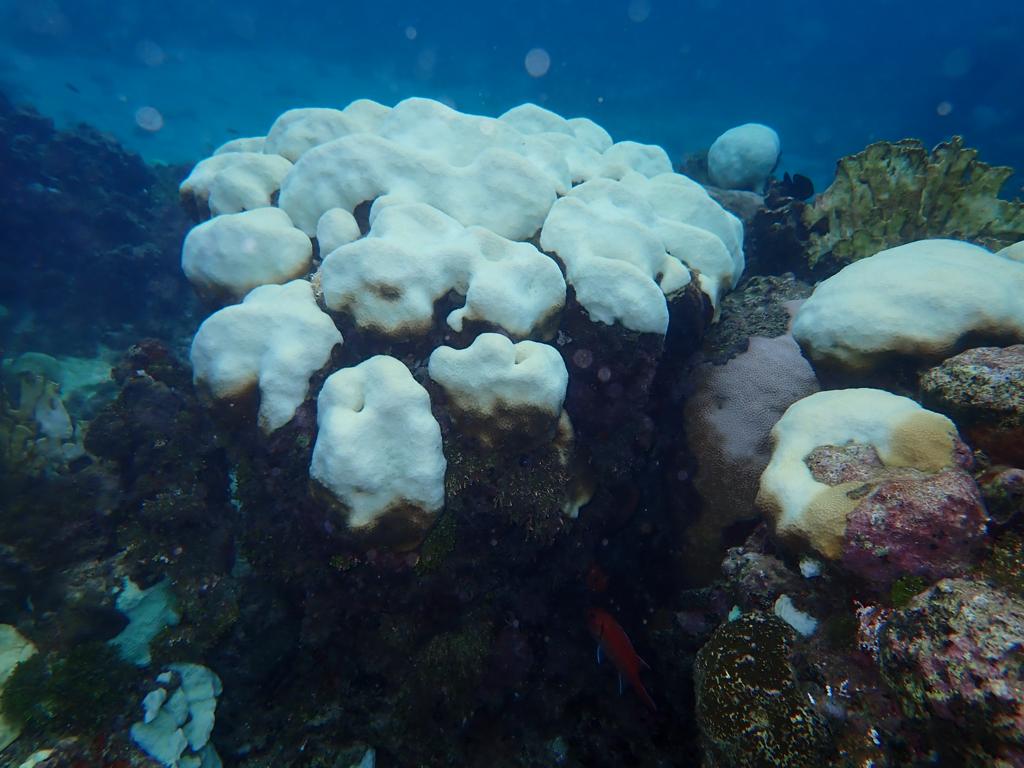Coral Reef Apocalypse in Jamaica


In late 2023, Jamaica’s reefs were subjected to the deadliest coral bleaching event in history due to the longest and most severe heat spike on record resulting in a mass extinction event and the reversal of more than fifteen years worth of restoration efforts in the country.
Sea surface temperatures around the island consistently lingered above 29°C (which is the bleaching threshold) over the course of September, October and November. While coral bleaching is a stress response from which the corals can still recover, by the first week of October it was too late and almost all of Jamaica’s iconic, golden “elkhorn” and “staghorn” branching corals which are critical to ecosystem function, providing habitat for countless fish and crustacea, as well as shoreline protection and recreational diving and snorkeling, were dead. The latter has serious erosion and property loss and damage implications for beaches, coastal infrastructure including hotels, and entire communities and their livelihoods.
The White River Fish Sanctuary is working tirelessly to re-establish populations of Jamaica’s critical reef-building species by finding and flagging far-flung survivors up and down the coastal shelf with a view to propagating and ultimately cross-breeding these to develop stronger, more resilient genetic reserves. “This is a needle in a haystack search mission but it’s this or nothing”, says Felix Charnley, the sanctuary’s coral reef scientist and marine consultant. “If you don’t find and salvage what’s left now, be prepared as an island to be left without any coral. It’s too late to save these reefs. 2023 showed us that. What we’re doing is endangered species conservation in the hopes that humanity can afford these life forms a more hospitable planet to survive on in a reasonable timeframe.”
Citizens must urge their governments to keep fossil fuels in the ground and invest in wartime-scale efforts to halve humanity’s footprint: an overwhelmingly exciting opportunity for circular economics, public transportation and careers in sustainable agriculture.
“These setbacks don’t make restoration attempts any less commendable. On the contrary they make them more essential. It’s just going to take a lot of long-distance swimming.”
A presentation given by the sanctuary on the island-wide rescue mission can be viewed here.
Contact: Felix Charnley
T: 876-861-8292
E: whiteriverfs@gmail.com
Leave a comment
You must be logged in to post a comment.